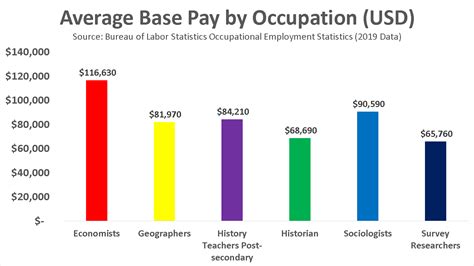A historian’s salary can vary depending on their experience, education, and the type of organization they work for. According to the U.S. Bureau of Labor Statistics, the median annual salary for historians was $63,830 in May 2021. The lowest 10 percent earned less than $37,320, and the highest 10 percent earned more than $123,710.

Factors That Affect a Historian’s Salary
Several factors can affect a historian’s salary, including:
- Experience: Historians with more experience typically earn more than those with less experience.
- Education: Historians with a master’s degree or Ph.D. typically earn more than those with a bachelor’s degree.
- Type of organization: Historians who work for the government or academia typically earn less than those who work for private companies.
Common Job Titles for Historians
Some common job titles for historians include:
- Archivist
- Curator
- Historian
- Librarian
- Museum educator
- Researcher
- Teacher
Pros and Cons of Being a Historian
There are several pros and cons to being a historian.
Pros:
- Intellectual stimulation: Historians get to explore the past and learn about different cultures and societies.
- Job security: Historians are in demand in various settings, including museums, libraries, archives, and academia.
- Good benefits: Historians typically have good benefits, such as health insurance, paid time off, and retirement plans.
Cons:
- Low pay: Historians typically earn less than professionals in other fields with similar levels of education and experience.
- Long hours: Historians often work long hours, especially when they are on deadline or working on a research project.
- Stressful: Historians can sometimes feel stressed when working on projects with a tight deadline or dealing with difficult materials.
FAQs About Historian Salaries
- What is the average salary for a historian?
The average salary for a historian is $63,830.
- What is the highest salary for a historian?
The highest 10 percent of historians earn more than $123,710.
- What is the lowest salary for a historian?
The lowest 10 percent of historians earn less than $37,320.
- What factors affect a historian’s salary?
Factors that affect a historian’s salary include experience, education, and the type of organization they work for.
- What are some common job titles for historians?
Some common job titles for historians include archivist, curator, historian, librarian, museum educator, researcher, and teacher.
- What are the pros and cons of being a historian?
Pros of being a historian include intellectual stimulation, job security, and good benefits. Cons include low pay, long hours, and stress.
Conclusion
A historian’s salary can vary depending on their experience, education, and the type of organization they work for. Historians with more experience typically earn more than those with less experience. Historians with a master’s degree or Ph.D. typically earn more than those with a bachelor’s degree. Historians who work for the government or academia typically earn less than those who work for private companies.
